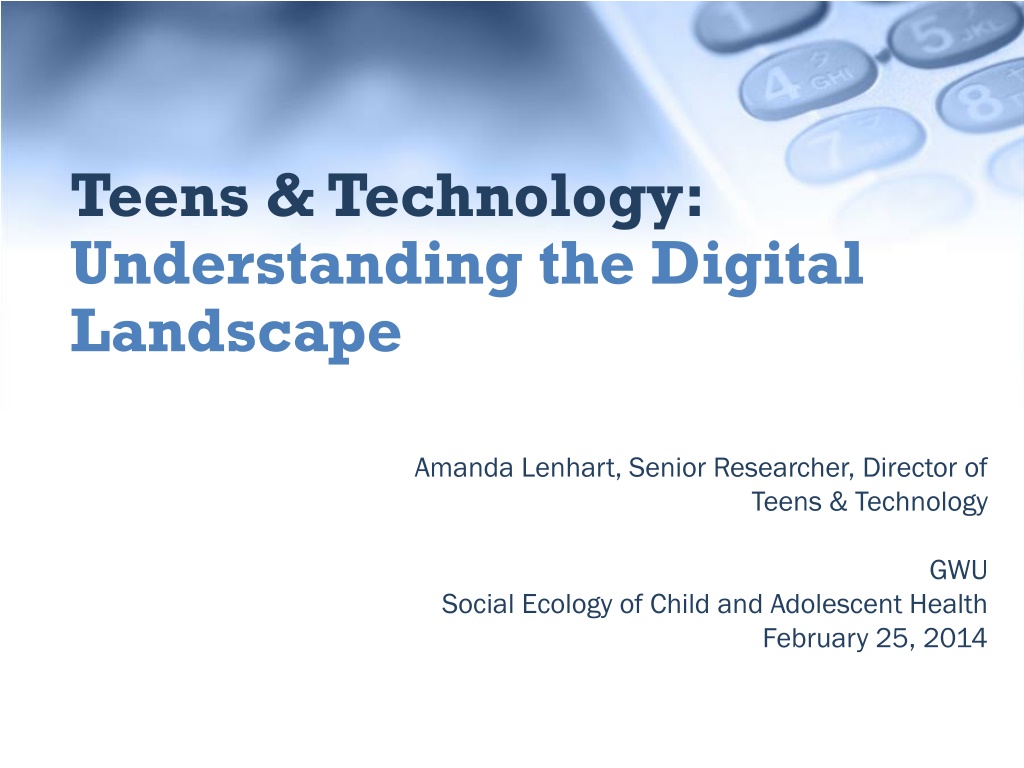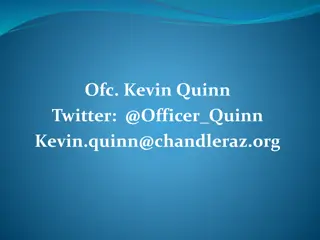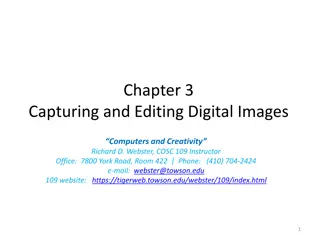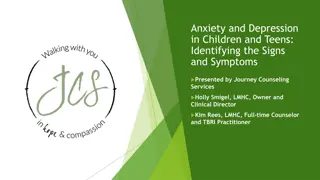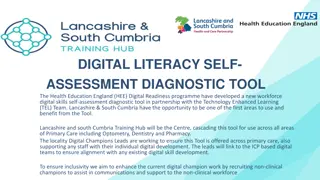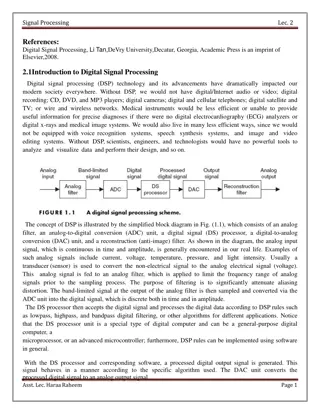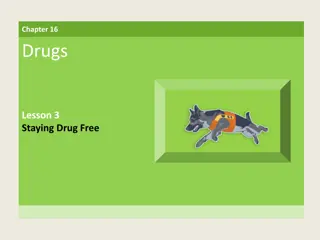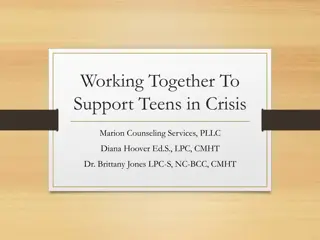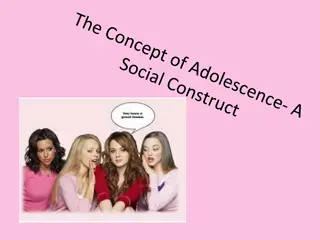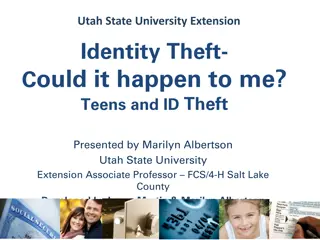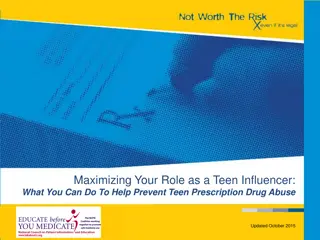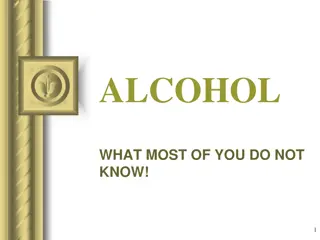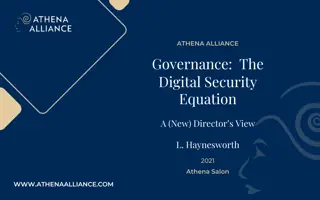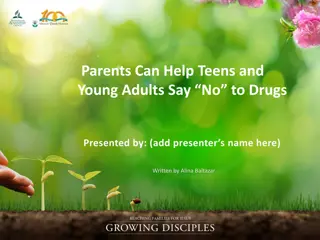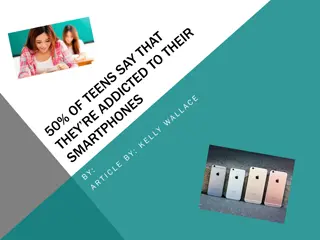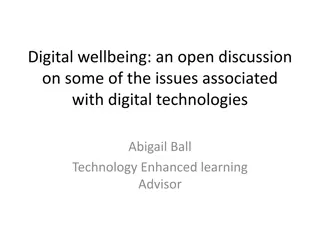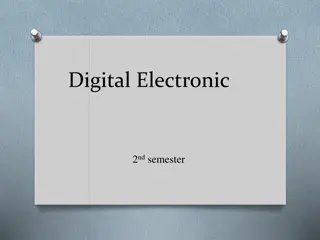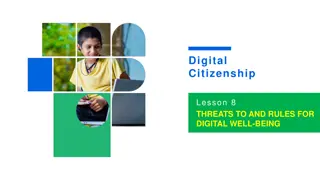Teens & Technology: Understanding the Digital Landscape
This presentation by Amanda Lenhart delves into the digital habits of teens, covering topics such as internet usage, mobile trends, texting preferences, and device ownership. It highlights the shift towards mobile internet use and the prevalence of texting as a primary form of communication among teenagers.
Download Presentation

Please find below an Image/Link to download the presentation.
The content on the website is provided AS IS for your information and personal use only. It may not be sold, licensed, or shared on other websites without obtaining consent from the author. Download presentation by click this link. If you encounter any issues during the download, it is possible that the publisher has removed the file from their server.
E N D
Presentation Transcript
Teens & Technology: Understanding the Digital Landscape Amanda Lenhart, Senior Researcher, Director of Teens & Technology GWU Social Ecology of Child and Adolescent Health February 25, 2014
About Pew Internet / Pew Research Part of the Pew Research Center, a non-partisan fact tank in Washington, DC Studies how people use digital technologies Does not promote specific technologies or make policy recommendations Data for this talk is from nationally representative telephone surveys of U.S. adults and teens (on landlines and cell phones) Short cut: just the facts , non-advocacy, non- policy part of the Pew universe We re the public opinion,
Teens stationary computing is shared 95% of teens use the internet 93% of teens have a computer or have access to one 71% of teen computer users say the computer they use most often is shared with family members. 23% of teens have a tablet computer.
Teens internet use is becoming increasingly mobile. 78% of teens have a cell phone About three in four (74%) teens ages 12-17 are mobile internet users who say they access the internet on cell phones, tablets, and other mobile devices at least occasionally. 37% of all U.S. teens own smartphones, up from just 23% in 2011. One in four teens are cell-mostly internet users. Among teen smartphone owners, half are cell- mostly.
Older teens Middle Income Teens Missing
Older Girls Missing middle income
Texting Texting dominates teens general communication choices. 75% of all teens text. 63% say that they use text to communicate with others every day. 60 texts per day (median) for the typical teen text user. Older girls remain the most enthusiastic texters, with a median of 100 texts a day in 2011, compared with 50 for boys the same age. African-American, Latino and lower income youth are all heavy texters.
10/6/2024 10
Teens and mobile apps 58% of all teens have downloaded apps to their cell phone or tablet computer. 51% of teen app users have avoided certain apps over privacy concerns. 26% of teen app users have uninstalled an app because they learned it was collecting personal information they did not wish to share. 46% of teen app users have turned off location tracking features on their cell phone or in an app because they were worried about the privacy of their information.
Teens are diversifying their social media portfolios. Teen and adult use of SNS + Twitter change over time
Focus group discussions with teens suggest that they have waning enthusiasm for Facebook. Male (age 16): A lot of friends convinced me to make a Twitter. Because everyone's saying Facebook's dead. Teens expressed negative views about: the increasing adult presence people sharing excessively stressful drama associated with interactions on the site but they keep using it because participation is an important part of overall teenage socializing.
Female (age 19): Yeah, that's why we go on Twitter and Instagram [instead of Facebook]. My mom doesn't have that. Male (age 18): Facebook doesn't have a limit to characters on it. So in Twitter, there's only so much you can say. On Facebook, they say so many details of things that you don't want to know. You'd be like, are you serious? No one really cares that much. Female (age 14): "OK, here's something I want to say. I think Facebook can be fun, but also it's drama central. On Facebook, people imply things and say things, even just by a like, that they wouldn't say in real life.
Teens, like adults, are finding ways to diversify their social media portfolio for different purposes. In some cases, it helps them to compartmentalize smaller groups of friends and certain kinds of interactions. In other cases, the newer platforms are appealing for the specific features and functionality they offer.
Female (age 15): I like Tumblr because I dont have to present a specific or false image of myself and I don t have to interact with people I don t necessarily want to talk to. Male (age 17): [Instagram] It s more safe... It s less social [than Facebook]. Female (age 17): [Snapchat] And it's just kind of fun. Because it's like texting, but you get to use your face as the emoticon instead of an actual emoticon.
Snapchat and ephemeral messaging hit sweet spot Mostly not sexting More like a visual conversation than other digital tools when it s over, it s gone, like a hallway chat. Doesn t become a part of the curated durable portrait of YOU online.
Teens (like adults) are sharing more info about themselves. Social media profiles: What teens post 2006 vs. 2012 100 91 90 79 80 71 71 70 61 60 53 49 50 2006 2012 40 29 30 20 20 10 2 0 Photo of yourself School name City or town where you live Email AddressCell phone number
Privacy norms vary by platform. Facebook privacy settings Among teen Facebook users Tweets: Public or private? Among teen Twitter users Don't know 1% Don't know 12% Private tweets 24% Public 14% Partiall y Private 25% Private 60% Public tweets 64%
Network size + composition matter in important ways. The typical (median) teen Facebook user has 300 friends. Teens with the largest FB networks (601+ friends) are: More frequent users of the site Have profiles on a wider range of other social media platforms. More likely to be FB friends with teachers + coaches More likely to be FB friends with people they have not met in person
For teens, managing their social privacy online is paramount. Lots of time and energy is devoted to reputation and network management: 74% of teen social media users have deleted people from their network. 59% have deleted or edited something that they posted in the past. 53% have deleted comments from others on their profile or account. 45% have removed their name from photos that have been tagged. 31% have deleted or deactivated an entire profile or account. 19% have posted updates, comments, photos, or videos that they later regretted.
What havent we talked about? Gaming major space of youth interaction Messaging apps GPS + location awareness (few youth enable, many, particularly girls turn it off if defaulted)
Amanda Lenhart Senior Researcher, Director of Teens & Technology Pew Research Center s Internet Project @amanda_lenhart @pewinternet @pewresearch
